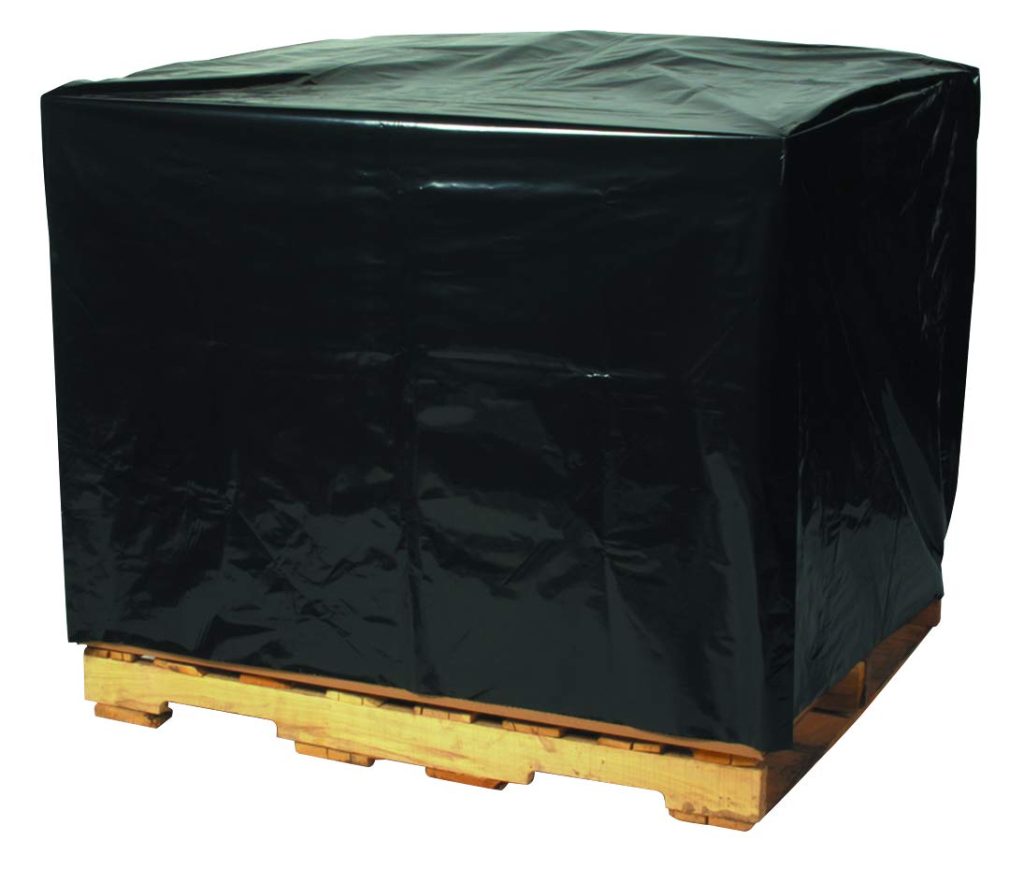In the dynamic world of logistics and transportation, where efficiency, durability, and cost-effectiveness are paramount, selecting the right materials for packaging and protection is crucial. Among the myriad of options available, PVC has distinguished itself as the premier material for PVC waterproof pallet covers. This article delves into the multifaceted reasons why PVC has captured the market’s attention, outlining its advantages from cost-benefit analysis to unparalleled durability.

I. Cost-Efficiency: A Win-Win Proposition
1. Economical Production:
PVC is renowned for its cost-effective production process. Its raw materials are readily available and can be processed using efficient manufacturing techniques, resulting in lower production costs compared to some alternative materials. This cost advantage translates directly into more affordable prices for end-users, making PVC pallet covers an attractive option for businesses looking to optimize their budgets.
2. Long-Term Savings:
Despite its initial cost-effectiveness, PVC’s longevity further underscores its economic viability. With proper care, PVC covers can withstand repeated use, minimizing the need for frequent replacements. This durability reduces operational costs over time, contributing to a lower total cost of ownership.
3. Reduced Waste and Recyclability:
PVC’s recyclability promotes sustainability and helps businesses adhere to environmental regulations. By recycling PVC covers, companies can minimize waste disposal costs while contributing to a circular economy. The existence of established recycling channels ensures that PVC waste is repurposed, further enhancing its cost-benefit analysis.
II. Exceptional Waterproofing Capabilities
1. Impermeable Barrier:
PVC’s inherent waterproof properties make it an ideal choice for protecting goods from moisture damage. Its dense molecular structure creates an impenetrable barrier, effectively shielding palletized cargo from rain, snow, and humidity, ensuring products arrive in pristine condition.
2. Resilience to Environmental Conditions:
Whether exposed to extreme temperatures, UV radiation, or chemical spills, PVC maintains its waterproof integrity. This resilience ensures that the covers perform consistently in diverse and challenging environments, safeguarding cargo against unforeseen weather conditions.
3. Easy Maintenance:
The waterproof nature of PVC also simplifies maintenance. Unlike fabrics or other materials that may absorb moisture and require specialized cleaning, PVC covers can be quickly wiped down or hosed off, maintaining their functionality and appearance with minimal effort.
III. Durability and Strength: Built to Last
1. Tear and Abrasion Resistance:
PVC’s robust construction makes it highly resistant to tears, punctures, and abrasions. This durability ensures that the covers can withstand the rigors of transportation, including rough handling and exposure to sharp edges or rough surfaces.
2. Flexibility and Strength:
Despite its toughness, PVC remains flexible, allowing it to conform to the shape of pallets and cargo, providing a snug fit without compromising its protective properties. This flexibility combined with strength ensures that the covers remain intact and effective, even under heavy loads.
3. 耐候性:
Beyond waterproofing, PVC is also resistant to fading, cracking, and other forms of degradation caused by exposure to the elements. This weather resistance ensures that the covers retain their appearance and functionality over extended periods, even in harsh environments.
IV. Versatility and Customization
1. Multiple Applications:
PVC pallet covers are versatile, suitable for a wide range of industries and applications. From food and beverage logistics to pharmaceutical transport, PVC’s properties make it an ideal solution for protecting a diverse array of goods.
2. Easy Customization:
PVC’s moldability and printability allow for easy customization to meet specific requirements. Companies can incorporate logos, branding elements, or even unique designs into the covers, enhancing brand recognition and professionalism.
3. Scalability:
Whether protecting a single pallet or an entire shipping container, PVC covers can be scaled to fit various sizes and shapes. This scalability ensures that businesses can tailor their protection solutions to match their specific needs and requirements.
V. Environmental Considerations and Sustainability
1. Recycling Initiatives:
As mentioned earlier, PVC’s recyclability is a significant environmental advantage. Many manufacturers and recycling facilities have established programs to collect and process used PVC covers, ensuring that they are repurposed rather than discarded.
2. Reduced Carbon Footprint:
By using PVC covers that last longer and require fewer replacements, businesses can reduce their overall carbon footprint. Fewer replacements mean less production, transportation, and disposal of waste, all of which contribute to greenhouse gas emissions.
3. Eco-Friendly Innovations:
The PVC industry is continuously investing in eco-friendly innovations, such as the development of bio-based PVC and improved recycling technologies. These efforts demonstrate the industry’s commitment to sustainability and address concerns about PVC’s environmental impact.
結論
In conclusion, PVC’s combination of cost-efficiency, waterproofing capabilities, durability, versatility, and environmental considerations make it the clear choice for PVC waterproof pallet covers. Whether protecting valuable cargo during transportation or enhancing brand image through customized designs, PVC covers offer a comprehensive solution that meets the demands of modern logistics and transportation. As the industry continues to evolve, PVC’s enduring qualities ensure that it will remain a trusted partner for businesses seeking to optimize their operations and protect their assets.
